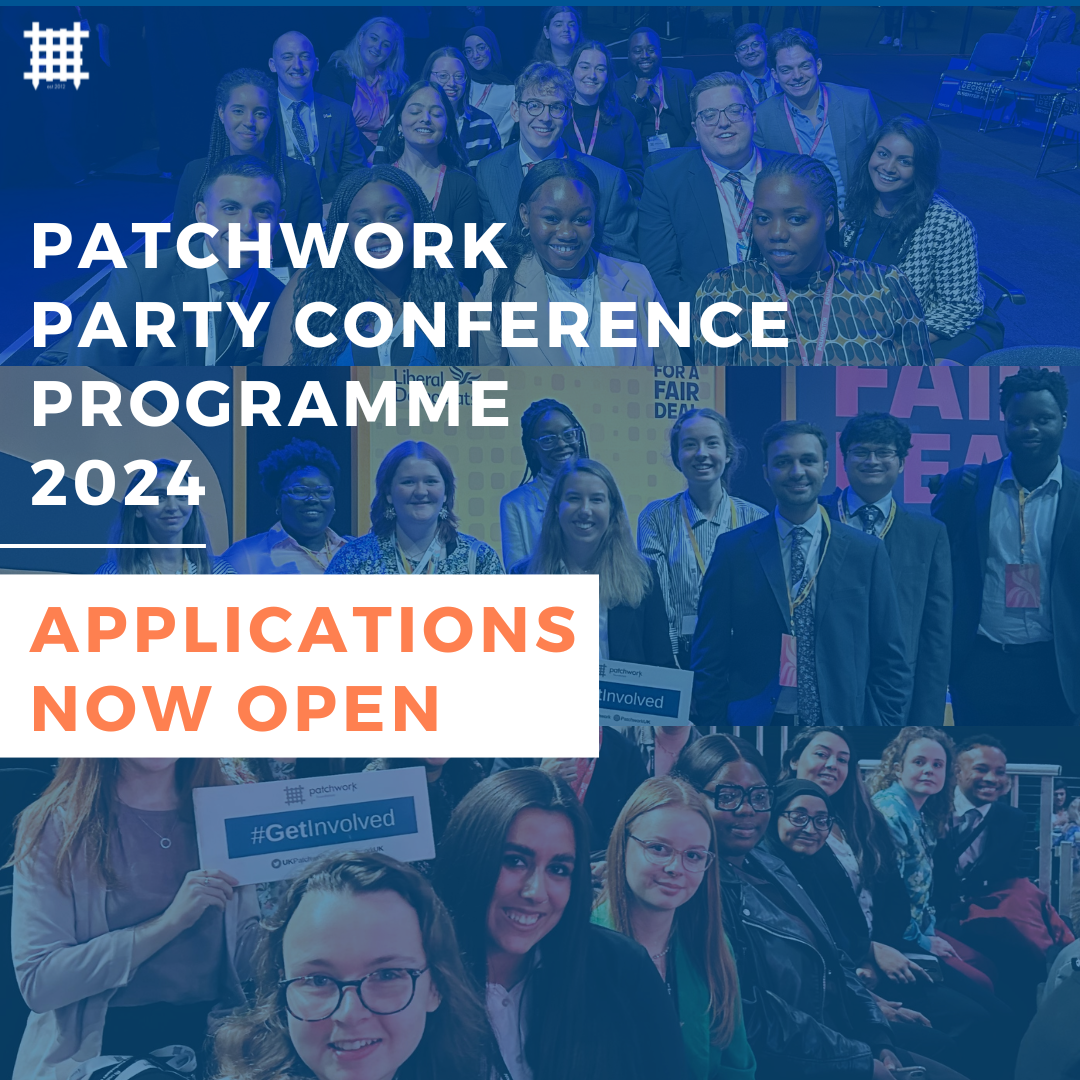“The biggest impact Patchwork has had on my life, is it has bridged the gap between having potential and being able to fulfil it, putting you in the right places at the right time, providing opportunities for you to improve yourself but also improve things for others…”
What are you up to at the moment?
I’m actually on the tail end of my maternity leave, but I’ll be returning to the Civil Service soon, and I’ll actually be in a new role. I’ll be Head of Policy for the Windrush Compensation Scheme in the Home Office.
I really want to do a job where I was benefitting real people I’ve had some really interesting roles in the centre of Government which I feel have given me an understanding of the system, but I was missing that sense of direct impact. What drew me to this role is the people who have suffered as a result of the Windrush scandal, which has impacted a lot of people’s lives in many negative ways; people not being able to see their parents, not having access to the NHS, literally going on holiday and not being able to come back home despite living here for decades. You can’t make up for that in the sense that you can’t undo it, but getting people an amount of compensation which enables them to have a transformative impact on their lives, that’s really driving me. So that’s what I’m hoping to achieve.
Why did you want to join the Civil Service?
I worked in the NGO world before I joined the Civil Service. When I left uni, I was like – I want to change the world for the better, and have some kind of positive social impact, but I didn’t really know what to do. At the start of my career I worked in a charity working on conflict resolution in communities, mediating between communities and local government and police, and I found that really fascinating. Then I worked at the National Union for Students, where I worked on faith and belief issues as well as liberation issues, so campaigns for female students, students with disabilities, LGBTQ+ students, and Black students. Alongside all that was my work with helping to establish Patchwork.
So I loved that work and I was passionate about all of it, but the thing that I really felt was how much power Government has to shape the landscape. Government decides where the funding will go and what the big agendas of the day are, and I felt like if I wanted to have impact at scale, then I need to impact national policy and be at the table in that way. That’s why I wanted to join the Civil Service; I wanted to impact national policy and make it more reflective of the experiences I had, and also the things that I was seeing at the grassroots.
You mentioned having worked at the centre of Government – what was it like working at Number 10?
In Number 10 I was Private Secretary in the Policy Unit. I worked with the Director and Deputy Director to coordinate the unit on their behalf, and also got involved with some policy myself, specifically around domestic abuse policy and clean air. One of the things I got to work on and that I’m really grateful for and proud of, was securing a Government commitment to provide accommodation-based services to survivors of domestic abuse.
Being at the centre of Government was fascinating. It was really interesting to see just how hard it is to be Prime Minister. I think there’s a lot of glamour associated with it, but I was in Number 10 during Theresa May’s last year and a half, and she was trying to manage her party, Brexit, and so much more – it’s really, really difficult.
What did you learn from the experience?
It taught me the skills that help you in terms of the way you communicate and the way you present yourself in that environment, but also to question whether that’s how you want to operate. I think in that sense, it was an environment that personally really made me self-reflect a lot on who I am, what I want to be, what I want to be known for, and how I want to be. It reaffirmed for me that actually the things I value, even if others don’t value it, is being kind, and gentle, and a listening ear. I think in the end those qualities also make you more effective.
It also taught me how important it is not to assess yourself according to external features. It’s very easy to think ‘oh I’m working at Number 10, I must be doing pretty well in life’ but it doesn’t mean anything in the deepest sense of what it means to be human. Your character and how you really are often completely separate from the place you happen to find yourself in at this moment in time. I think, particularly in places with a lot of prestige associated with them, it’s easy to lose yourself if you’re not clear on who you are and what you’re about.
What are the best and worst parts of working in the Civil Service?
I think the best thing about being in the Civil Service is that if you’re in the right role for you, you really are at the table contributing to the decisions that impact a lot of people. When everything lines up – when you have the political will, the money and the finances, and you have enough, good people – you can actually do good stuff that impacts people through national policies, and that’s awesome. I think the worst bit is when those things don’t line up, and you’re not really having the impact you wanted to have.
What would you change about the Civil Service?
In terms of big changes, I think it’s really hard to say, ‘oh if only this thing was different or that thing was different’, because trying to govern a country is actually really complicated! I think it’s really easy to critique, but it’s much harder to go ‘this is the way to do it’.
I guess the thing I’d change is to have more people in senior leadership and decision-making roles who don’t come from a middle-class background, alongside increased gender diversity, racial diversity, diversity of sexual orientation, and having people with disabilities. There’s an impact that your class has, what socio-economic background you come from, and I’d like more people in senior leadership and decision making roles to just be more diverse in all the ways, including how wealthy they have been and are.
You were one of the founding members of Patchwork and used to be our Chief of Staff. Why did you get involved and what did you learn from the experience?
Patchwork grew from not seeing myself or the people I knew reflected in politicians or political decision making. I think I’ve always had this strong sense of wanting to contribute since I was very young, but simultaneously feeling like there wasn’t a space for me. ‘People like me don’t get to do that kind of thing’ was the kind of way I felt, and Patchwork just offered this really exciting opportunity to try to change that, to try and bring more people into spaces and places that seemed so out of reach.
On a personal note, I really looked up to the others. I was one of the youngest, and I was the only woman, and in some ways I looked up to these guys so much that I didn’t realise at first that I could contribute and I had valid ideas. I was just going with the flow. There was a personal growth to it too, going from this quieter woman in what at times felt like quite a lad-y atmosphere, to Chief of Staff, and growing into that and getting used to authority.
What advice do you have for people hoping to join the Civil Service?
It’s something I still struggle with, but I think it’s really important to know yourself and own yourself. What I mean by that is: know what your strengths are, know what your weaknesses are, know what makes you different, and just accept all of it and be okay with all of it. When you have that kind of acceptance, there’s just this authentic quiet confidence that comes from that which is very powerful. I think sometimes if you’re a bit ‘different’ – for me it’s that I might be the only brown person in that space or room, and almost definitely the only person who’s visibly Muslim – sometimes you’re so concerned with what people think of you and wanting people to think well of you, when really the thing to focus on is ‘what value can I bring’.
Helen MacNamara who was the Deputy Cabinet Secretary told me ‘Zahra you have the power to make the weather wherever you go’ and I thought that was so interesting – what she meant was that you can go into that space and you can decide whether it’s a sunny day or not just through the way we are. I think we all have that power, to influence those around us, and you don’t have to be extroverted and a really great talker, you can do it in your own way in your own style.
Stay updated
Join our mailing list to stay up to date with all the latest!
Latest news
Testimonials



